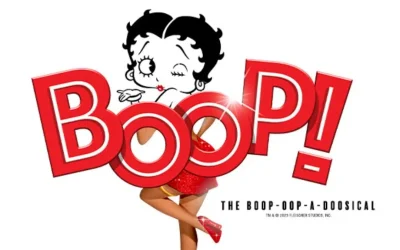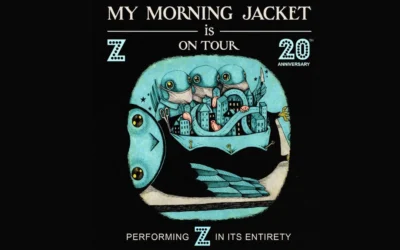There is a coming shift in the primary and secondary ticket market place. Brokers who adapt will maximize their revenue while those who don’t will cede a significant portion of their market share.
What’s going on? First, artists, teams, and venues are realizing there is money to be made in the secondary market…products like our Flash Seats help teams create branded secondary marketplaces that allow fans to quickly and conveniently buy, sell and transfer tickets. Second, with this data in hand, and with new technology hitting the market, sophisticated dynamic pricing is now possible in the primary ticket market.
The good news for brokers is that there are five decades of financial market data showing that a secondary market always enhances a primary market if the primary goods are priced at market. This is true for commodities and futures that have fixed “event” dates just like concerts and games. As the industry begins to accept and embrace the secondary market as a positive influence, brokers can be ahead of the curve by changing where they list, how they determine pricing, and how they deliver the inventory.
Where to Sell: The data shows that if prices are equal, buyers prefer to buy from the original seller because their confidence is increased. This means that if a team, artist or venue’s primary tickets are priced at market, buyers will prefer to buy from them. However, with a branded marketplace, buying from the team or artist doesn’t necessarily mean they are the ticket seller – just that they offer an official marketplace on which the tickets are guaranteed to be authentic. Brokers who sell and buy on the artist/team/venue branded marketplace can benefit from the increased consumer confidence.
How to Price: Where does the market price come from? Real fan behavior through actual purchases (not hopeful intent) reveals the market price. That’s the definition of a “market price” – the price people are willing to pay. Third-party marketplaces such as brokers and online marketplaces reveal market prices to fans regardless of the “face value” (an outdated concept). Knowing this, ticket issuers are starting to realize that they can capitalize on, and maximize margin with, a real-time view of what fans are willing to pay.
If it is now an accepted truth – the fact that third-party markets exist, and that consumers therefore have easy access to market prices (even more so now with real-time data on mobile devices) – how can brokers maximize fan lifetime value? Essentially, they need the equivalent of a Bloomberg Terminal, something that will offer an instantaneous view of market data just as a stock ticker does. Having real-time information on how fans value a given event is the only way to maximize margin by setting (and adjusting) pricing using the same technology as the stock, commodities, and other electronic markets. With digital tickets, every listing, bid, ask, and sale is an instantly-available data point that can inform pricing in real time. Forward thinking brokers will access ticketing system APIs directly, get this market data in real time, and use advanced pricing algorithms for their listings.
How to Deliver: Live events are unique in that they occur at a defined date and time. This has two contradictory implications for an inventory holder:
– price-insensitive buyers who cannot commit to an event in advance will pay a significant premium shortly before the event
– the value of unsold inventory drops to $0 just after the event start
Both of these facts bear materially on profitability. However, pricing algorithms for stocks and non-perishable inventory don’t account for this time-dependency. A different class of yield-management strategies can be applied to great effect, but only if the inventory can be sold effectively close to event time.
The reality of paper tickets (whether pre-printed or print-at-home) is that they are an inconvenience for the last-minute fan. Whether the tickets are delivered in person, sent via overnight delivery, picked up (after a long wait) at will-call, or printed (once I have found a computer and printer on which I can access my email), they stifle the real-time convenience that powers marketplaces like iTunes, with 10 billion downloads. For brokers, paper tickets make it impossible to apply margin-maximizing yield-management techniques.
Digital tickets like Flash Seats can be instantly delivered to a fan, allowing them to enter a venue seconds after a ticket purchase. When you combine real-time delivery with real-time view to market pricing, you have the perfect conditions for yield management, which can charge a premium for targeted buyers while at the same time maximizing total inventory sell-through by the event start time.
What it means: It is interesting that digital sales, pricing, and delivery tools are available in all other electronic markets EXCEPT ticketing. This is because the industry has been dominated by one ticketing provider. However, technology marches on for both consumers and businesses. Teams like the Rockets and Cavaliers recognize this and have hired people with specific expertise in analytics and yield management, arming them with data from their branded marketplaces. Artists like Billy Joel, the Eagles, Elton John, Britney Spears, and Roger Waters recognize that it is far better to embrace the secondary market and the data it provides than to pretend a secondary market doesn’t exist.
Flash Seats offers a wealth of opportunity, and has material implications for brokers:
– It offers a true “Bloomberg Terminal” – essential for to maximizing yield. Brokers no longer need to rely on third-party sites and uninformed speculation in an attempt to manage inventory or assess market price.
– It allows brokers to exploit the value of selling on a branded, authenticated marketplace.
– It allows inventory to be delivered instantaneously, right up to event start, permitting brokers to apply advanced yield management techniques to ticketing for the first time.
There is only one outcome that will result from this evolution. The market will embrace branded secondary marketplaces as tools to maximize revenue and margin across the entire primary and secondary business. Ticket brokers who use advanced technology as the basis for new sophisticated approaches to the secondary market will thrive.
Sam Gerace is the CEO of Veritix, a sports and live entertainment ticketing and marketing information systems company, which created Flash Seats digital ticketing technology. Under Sam’s direction since its market launch, the company tickets 13 percent of the NBA, 16 percent of the MLS, the NCAA Championships, and a variety of venues in more than 30 states, including the Pepsi Center, the eighth-largest venue in the U.S. Gerace is the Founder and former CEO of Be Free (NASDAQ: BFRE), an Internet marketing information systems company; a former Director of Valueclick (NASDAQ: VCLK), and a successful four-time entrepreneur with twenty-three years of growth company experience.



